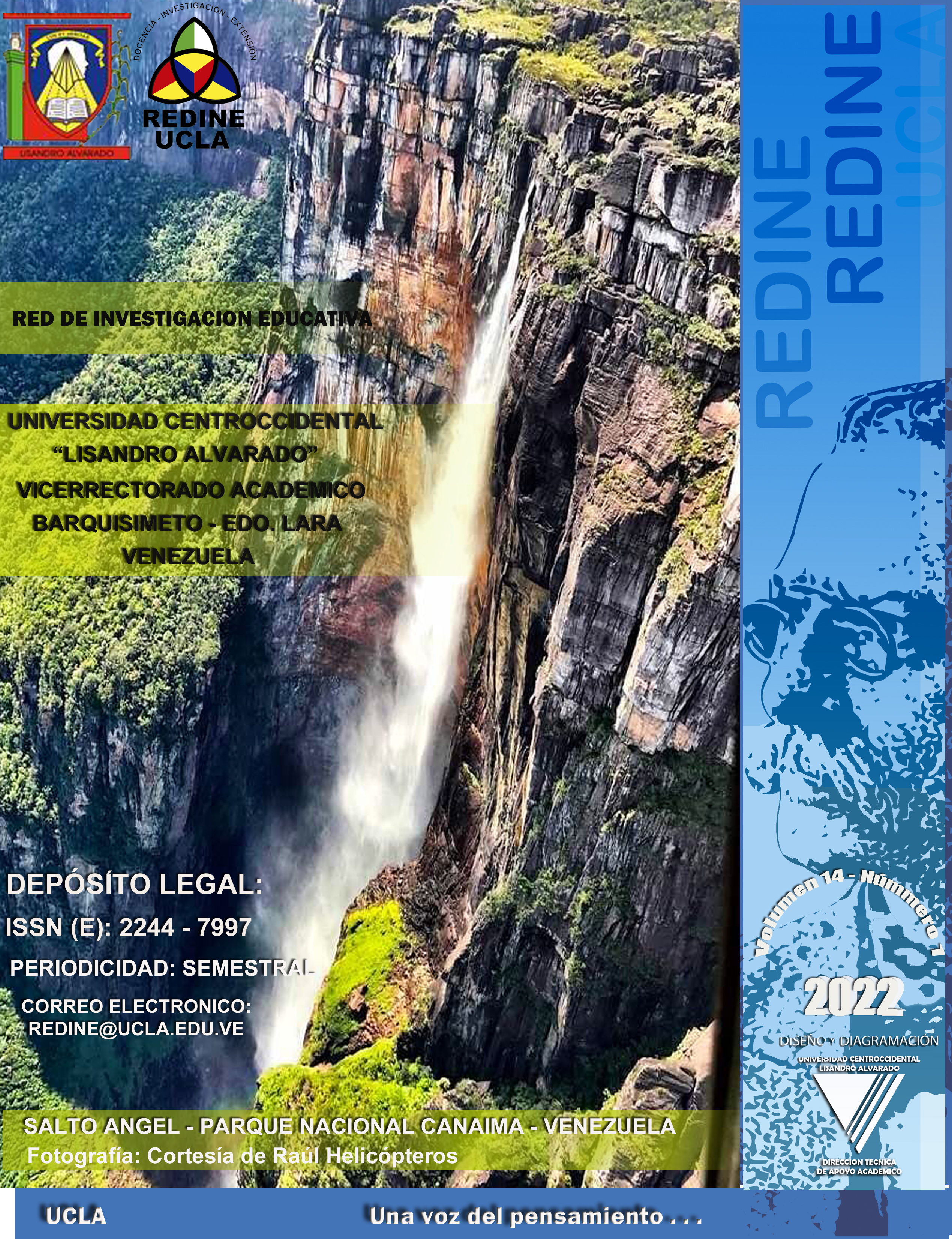Aristotelian virtues in the management of human talent
Keywords:
Aristotelian Virtues, Human Talent, Management by competencesAbstract
The purpose of this research, is to glimpse the senses and meanings that the workers of the Simón Rodríguez National Experimental University, Barquisimeto nucleus grant to ethical behavior and the development of virtues in the work environment. The theories that serve as the central axis of the investigation are: Aristotle's ethics, which shows that human actions are directed towards the ultimate goal of achieving happiness, through the exercise of virtues; as well as the ethics of Thomas Aquinas who incorporates the theological virtues and explains the desire for perfection, through the existence of God. Theological virtue is particularly explored: love; from Scheler's perspective, as a founding element of ethos. I also address the parallelism between human resource management by competencies with the Aristotelian virtues. Epistemologically, the research is based on the interpretive paradigm and thus reveals the experience of the staff in the exercise of virtues in the work environment; supported by hermeneutics, for interpretation from personal historicity. The research techniques and tools are participant observation, the discussion group and the interview, with a subjective, qualitative and holistic vision. Three (03) subjects were interviewed, their responses were analyzed before categorization by means of the Atlas-Ti. From the interpretation arises the relationship between ethics, virtues, love and happiness, a contribution to the paradigm of the whole person and the theoretical construct: The Virtue of Love in the Development of Other Virtues and Founder of Ethos for Human Talent Management.
Downloads
References
Abril, P. (2001). La ética de Aristóteles. En: http://www.dipualba.es/Publicaciones/
LibrosPapel/EticaAris.pdf
Alles M. (2002). Dirección Estratégica De Recursos Humanos Gestión Por Competencias: El Diccionario Editorial
Granica, 2002 Buenos Aires. Argentina.
Alles M. (2008). Desarrollo del Talento Humano Basado en Competencias. Segunda edición. Ediciones Granica
SA. Buenos Aires, Argentina.
Aquino T. (1989). Suma de Teología II Parte I-II. Segunda edición. Biblioteca de Autores Cristianos. Madrid. En: https://www.dominicos.org/media/uploads/
recursos/libros/suma/2.pdf
Calvo, T. (2008). Aristóteles y el aristotelismo. Ediciones Akal. Madrid. España. Disponible en: https://www.scribd.com/document_downloads
/direct/247857877
Covey, S. (2005). El Octavo hábito. De la efectividad a la grandeza. Traducción de Gemma Andujar, Beatriz Bueno, Genis Sanchez y Lucas Vernal. Ediciones Paidós de Ibérica S.A.
Dussel E. (1994). 1492: El encubrimiento del otro: hacia el origen del mito de la modernidad. U.M.S.A. Facultad de Humanidades y Ciencias de la Educación Plural Editores. Disponible en: http://bibliotecavirtual.clacso.org.ar/
clacso/otros/20111218114130/1942.pdf
Dussel E. (1996). Filosofía de la liberación. Editorial Nueva América. Bogotá. En: http://bibliotecavirtual.clacso.org.ar/
clacso/otros/20120227024607/filosofia.pdf
Dussel E. (2014). 14 tesis de ética. Primera edición. Buenos Aires Docencia 2015.
Heidegger, M. (1953). Ser y Tiempo. 7ma edición ed.
Philosophia. Disponible en: http://www.cervantesvirtual.com/
descargaPdf/el-ser-y-el-tiempo-de-martin-heidegger-en-la-traduccion-de-jose-gaos-1951/
Kierkegaard ( 2006). Las Obras del Amor. Meditaciones
cristianas en forma de discursos. Ediciones Sígueme.
Salamanca. España.
Leal, J. (2012). La Autonomía del Sujeto Investigador y La Metodología de Investigación. 3ra Edición. Librería
Virtual Ozal. [Libro electrónico].
Lewis C. (2006). Los Cuatro Amores. En: https://es.slideshare.net/eelasro/
los-cuatro-amores-by-cs-lewis
Morín (1998). Complejo de Amor. Paris, Éditions du Seuil, 1997: 13-36). En: http://www.pensamientocomplejo.com.ar
/documento.asp?Estado=VerFicha&IdDocumento=70
Morín E. (2002a). Estamos en un Titanic.
Conferencia presentada en las jornadas 'Los
Desafíos Éticos del Desarrollo' 5 y 6 de Septiembre de 2002. Facultad de Ciencias Económicas de la Universidad de
Buenos Aires UBA Buenos Aires, Argentina disponible en: https://pensamientocomplejo.org/?mdocs-file=299
Morín E. (2002b). Ética y Globalización. Palabras de Edgar Morín en las jornadas 'Los Desafíos Éticos del Desarrollo' 5 y 6 de Septiembre de 2002. Facultad de Ciencias Económicas de la Universidad de Buenos Aires UBA Buenos Aires, Argentina. Disponible en: http://www.pensamientocomplejo.com.ar
/documento.asp?Estado=VerFicha&IdDocumento=12
Muñoz, S. (2005). La Exigencia Ética. Sobre la Doctrina del
Amor de Kierkegaard. Revista filosofía Nro. 32. 2005.
Instituto de Filosofía. Universidad de Antioquia. Disponible en: https://aprendeenlinea.udea.edu.co/
revistas/index.php/estudios_de_filosofia/
article/view/12840/11563
Real Academia Española (2021). Diccionario de la Lengua Española. En: https://dle.rae.es/amor
Román, A. (2011). La Huella de San Agustín en la Ética de los Valores de Scheler. Tesis doctoral. Escuela de Filosofía. Universidad de Murcia. España. En: http://www.tesisenred.net/bitstream/
handle/10803/81556/TADRO.pdf?sequence=22
Scheler, M. (2008). Ordo Amoris. Traducción de Xavier Zubiri, Tercera Edición. Caparros Editores.
Taylor, S. y Bodgan, R. (2000). Introducción a los métodos cualitativos de investigación. Tercera Edición. Editorial Paidós.
Published
How to Cite
Issue
Section

This work is licensed under a Creative Commons Attribution-NonCommercial-ShareAlike 4.0 International License.
Copyright from the year of publication
This work is licensed under a:
Creative Commons Reconocimiento-NoComercial-CompartirIgual 4.0 Internacional (CC BY-NC-SA 4.0)
The opinions expressed by the authors do not necessarily reflect the views of the publication's editor or UCLA. Total or partial reproduction of the texts published here is authorized, provided that the complete source and the electronic address of this journal are cited. Authors have the right to use their articles for any purpose, provided it is done on a non-profit basis. Authors may publish the final approved version of their work online or in any other medium after it has been published in this journal.




